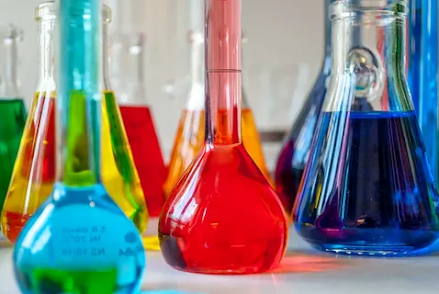Inorganic Chemicals Market: Exploring Novel Applications in Electronics and Energy
The inorganic chemicals market is a crucial segment of the global chemical industry, encompassing a diverse range of chemical compounds that do not contain carbon-hydrogen (C-H) bonds. These chemicals play a pivotal role in various industrial applications, including manufacturing, construction, agriculture, electronics, and more. Inorganic chemicals are typically derived from minerals, ores, and other naturally occurring sources, as well as through various chemical synthesis processes.
Key Types of Inorganic Chemicals:
Acids and Bases: Inorganic acids (e.g., sulfuric acid, hydrochloric acid) and bases (e.g., sodium hydroxide, potassium hydroxide) are fundamental chemicals used in numerous industrial processes, including pH regulation, chemical synthesis, and metal processing.
Salts: Inorganic salts, such as sodium chloride (table salt), calcium carbonate, and ammonium nitrate, are utilized in applications ranging from food preservation to fertilizers and water treatment.
Metals and Metal Compounds: Inorganic chemicals encompass a wide array of metals and their compounds, including aluminum, copper, iron, titanium, and various metal oxides, sulfides, and nitrides. These substances are crucial for industries like electronics, automotive manufacturing, and construction.
Catalysts: Inorganic compounds often serve as catalysts in chemical reactions, accelerating reaction rates without being consumed in the process. These catalysts are widely used in the production of fuels, chemicals, and plastics.
Pigments and Dyes: Inorganic pigments, such as titanium dioxide and iron oxide, are used for coloring various materials, including paints, ceramics, and plastics.
Glass and Ceramics: Inorganic materials like silica, alumina, and various oxides are essential components in the production of glass, ceramics, and refractory materials used in high-temperature applications.
Market Drivers:
Several factors contribute to the growth and demand for inorganic chemicals:
Industrialization and Infrastructure Development: The expanding industrial and construction sectors require inorganic chemicals for manufacturing, building materials, and infrastructure development.
Agricultural Demand: Fertilizers and agrochemicals, which often rely on inorganic compounds, are essential for increasing agricultural productivity to meet global food demands.
Technological Advancements: Industries such as electronics, photovoltaics, and automotive manufacturing rely on inorganic chemicals for advanced materials, components, and devices.
Environmental Concerns: Inorganic chemicals play a vital role in water treatment, air pollution control, and waste management, supporting environmental sustainability efforts.
Challenges:
The inorganic chemicals market also faces challenges, including:
Regulatory Compliance: Inorganic chemicals often have strict regulatory guidelines due to their potential environmental and health impacts.
Competitive Landscape: The market is highly competitive, with numerous global and regional players vying for market share.
Raw Material Availability: Dependence on certain minerals and ores for production can be affected by geopolitical factors and supply chain disruptions.
Sustainability Concerns: The industry is under pressure to develop more sustainable production processes and materials due to increasing environmental awareness.
Regional Trends:
The inorganic chemicals market is global, with production and consumption spread across regions like Asia-Pacific, North America, Europe, and Latin America. The Asia-Pacific region, particularly China and India, is a significant player due to its industrial growth and demand for infrastructure and consumer goods.
Future Outlook:
The inorganic chemicals market is poised for continued growth driven by urbanization, industrialization, and technological advancements. As industries evolve and consumer demands change, the market will likely witness a shift towards sustainable and environmentally friendly practices.
In conclusion, the inorganic chemicals market is a diverse and dynamic sector that underpins various industries. Its role in shaping modern manufacturing, infrastructure, and technological advancements underscores its significance in the global economy.



.png)
Comments
Post a Comment